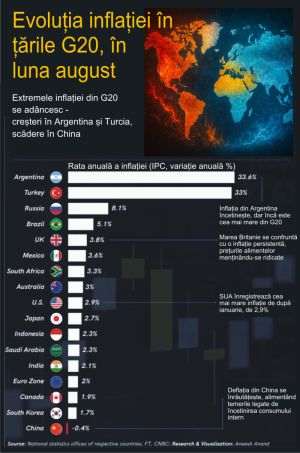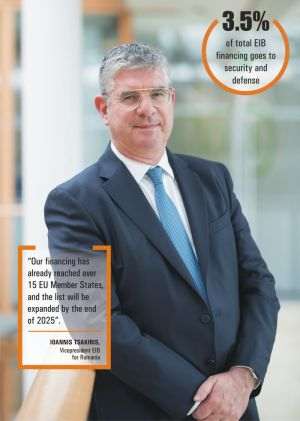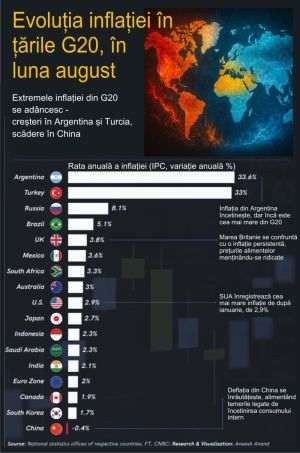The approval of the state budget, the third wave of pandemic, new movement restrictions, spontaneous subway strike and protests against government measures are the defining elements of the most tumultuous month since the beginning of 2021 so far.
If March started with a heated political struggle in the Parliament on the state budget, it ended under the sign of the two types of protest - one staged by trade unions and another by the civil society, both in violation of law 55/2020 on the state of alert. In all this time, the number of new cases of infection has steadily increased. On March 16 this year was recorded the number of 6,000 infections in 24 hours (6118), and a peak was seen on March 25 - with 6651 cases. The number of cases on the last day of the month (March 31st) was 6115 cases. That situation led to an increase in the number of patients in Intensive Care Units, which, on the last day of last month, had no beds available for Covid-19 patients, and to the passing of new movement restrictions by the government, despite those almost 2 million people who have already been vaccinated with at least one dose in the first three months of this year.
• The new budget passed
In the first two days of March, the joint session of the Parliament fast-forwarded the debate of the state budget law and the social security budget law. Following the debates that lasted past midnight, on March 1st, on March 2nd the Parliament barely passed the draft of the state budget law, with 234 votes "in favor" and 170 votes "against", meaning precisely the number of votes needed. Had one of the MPs of the PNL, USR-PLUS or the UDMR been missing, the state budget law would not have passed, the Parliament. The government coalition's MPs denied the 3466 amendments submitted by the political opposition to the state budget law.
According to the normative act voted by the Parliament, the state budget has 173.7 billion lei in revenues, 326.4 billion lei in commitment appropriations and less than 261 billion lei budgetary loans, with a deficit of 87,34 billion lei. At the consolidated level, the deficit is estimated at 7.16% of the gross domestic product (on cash) this year, in the context of revenues that account for 32.67% of the GDP, respectively 364.9 billion lei, and expenditures of 39.84% of the GDP, i.e. 444.9 billion lei. The state budget is built on an economic framework with a 4.31% predicted growth rate for 2021.
The state budget allocates nearly 62 billion lei for investments and 90.08 billion lei for pensions.
Immediately after the passing of the law, PSD leaders announced that they would file criminal complaints with the National Anti Corruption Department against the members of the Government, due to the latter having inserted Appendix 7.03 in the draft of the normative act, which directly allocates over 360 million lei for various investment projects to the administrative-territorial units headed by representatives of the governing coalition.
• The law concerning the Romexpo plot of land, declared constitutional
On March 3rd, 2021, the Constitutional Court has rejected, with a majority of votes, as unfounded, the objection submitted by 51 deputies of the Parliamentary Group of the USR, the UDMR as well as other unaffiliated MPs and found that the law amending and supplementing the Law of Chambers of Commerce of Romania no. 335/2007 is constitutional, in relation to the aforementioned criticisms. Through the law in question, the right of ownership of all the plots of land that have been leased to the Romanian Chamber of Commerce and Industry (CCIR), which it has erected buildings on, will be transferred free of charge from the state to the CCIR. Some of those lands will also include the 46 hectares of the Romexpo area, where the CCIR in partnership with a private company will implement an urban regeneration project, worth almost 3 billion Euros.
After the ruling of the Romanian Constitutional Court of March 3rd, the law was sent by President Klaus Iohannis to the Parliament on March 31st, for reexamination.
Also on March 3, following the agreements within the Government Coalition, the Cîţu Cabinet appointed 36 prefects and 75 deputy prefects, who will be operating under the provisions of the Administrative Code amended via GEO 4/2021.
On the same day, the Bucharest Tribunal definitively denied the request for the reopening the "August 10" case by the DIICOT, a criminal case brought following the violent repression of the peaceful protest of August 10, 2018 in Victoriei Square.
In the meeting for the 2020 activity assessment of the High Court of Cassation and Justice, which was presented on the same day, President Klaus Iohannis stated: "Reviewing the judicial laws can no longer be postponed. I have faith that in the coming period, the framework governing the activity of justice in Romania will become predictable once again, in line with the standards of a European state. For that, ample debates in the Parliament are needed, which would not only be attended by the representatives of the professions involved in the act of serving justice, but also by representatives of the academic sector or human rights professionals. I hope that, as a result of this dialogue, the controversial legislative interventions of the last few years will have been corrected and solutions adapted to new legal and social realities will be implemented. (...) Increasing the quality of the act of justice, the consistent enforcement of the law, the resolution of cases within reasonable delays remain current desiderata. A proactive approach in using the procedural mechanisms that the High Court of Cassation and Justice has available in order to achieve a unified practice is likely to assure citizens that the law is equal for all and equitably enforced by all courts".
• Agro IMM Invest, an aid for Romanian farmers
On March 10, the government approved on 10 March the extension of the IMM Invest program for the current year, as well as the launch of a sub-program for Romanian farmers: Agro IMM Invest. With a 2021 guarantee cap of 1 billion lei, the new subprogram is intended to support SMEs in the field of agriculture, fisheries, aquaculture and the food sector. Agro IMM Invest has a 10% grant component, installment repayment breaks and a 24-month grace period upon the granting of the loan, for up to 24 months. As with other programs, farmers can access Agro IMM Invest until June 30, 2021.
"Last year, when we implemented IMM Invest, there have been several problems and we saw the need to create a program especially for farmers, a program with a cap of 1 billion lei. From what I understand, almost the entire amount has already been claimed, and if it is a successful program, like IMM Invest has been, we will supplement that amount", said PM Florin Cîţu, after the government meeting.
In the government meeting of March 10 the draft law which ratifies the deals between the Romanian government and the US government concerning the nuclear-energy projects of Cernavodă was approved.
In the same meeting, the members of the Cîţu government extended the state of alert by another 30 days, starting with March 14. Because of the third wave of the pandemic and the daily increase in the number of infections, the decision in question banned circulation during the night, between 22:00 and 5:00, as opposed to from 23:00-5:00, in the previous month.
At the end of the government meeting, prime-minister Florin Cîţu presented some of the data from the report of the Investigative Body concerning the fire which occurred at the end of January in the Wing 5 - Covid of the National Infectious Diseases Institute of Matei Balş, event which initially resulted in the death of six people and the relocation of 200 other patients to other divisions.
• The European green certificate, essential for the reopening of tourism
March 16 led to new disputes in the Parliament. The Senate debated and voted on the simple motion of no-confidence filed by 41 PSD MPs against Claudiu Năsui, the minister of the Economy, Entrepreneurship and Tourism. They have also criticized the stopping and underfunding of the programs for the promotion of exporters, the blocking of measures 2 and 3 of Emergency Government Ordinance 130/2020 concerning the funding of SMEs, the blocking of the support granted to HoReCa entrepreneurs and the difficult situation of state-owned companies. The Minister of the Economy further mentioned that all of the measures decided were intended to ensure the judicious spending of state budget funds and to stop the waste. The motion was rejected with 55 votes in favor, 72 against the dismissal of the minister and one abstention.
The next day, March 17, was a new moment in the handling of the current alleged pandemic. The European Commission proposed the creation of an electronic green certificate to facilitate free circulation, in conditions of safety, within the EU during the Covid-19 pandemic. The document proposed by the Commission will cover three types of permits: vaccination, testing for Sars-Cov-2 (through RT-PCR tests or quick antigenic tests) as well as for the people who got cured of Covid-19. According to the proposal of the Commission, all citizens - whether vaccinated or not - should receive one or more of the three types of green electronic certificate when traveling in the European Union.
Speaking on that matter, prime-minister Florin Cîţu said, on the same day that the certificate in question "does not have the value of a vaccination passport, a passport that does not exist anywhere and has not been passed by any member state of the Union".
Also on March 17, the government read for the first time the draft law which allows persons eligible for retirement to continue working.
"We are talking about people who, once they've reached retirement age, can opt, upon request, to work until 70. Thus we are talking about an option, a right, and not at all an obligation and this right pertains to the employee's right to work. People can extend their activity until 70, both in the public and the private sector. They also have the option to go back on their option to work and go back into retirement before 70, and the additional years of employment of people who opted to work for the continuation of activity lead to the recalculation of the pension in the public pension system. (...) I would also like to also mention here that, currently, there are about 35,000 people in the public system who combine the pension with the salary, even as, again a very important number, we have approximately 102,000 people over 65 who have currently opted to combine their pension and their salary, both in the public and private system", said Raluca Turcan, minister of labor.
• Chinese companies, excluded from tenders and the future projects of the PNRR
An important decision made by the Government last month was the approval of the Emergency Ordinance through which Chinese companies controlled by the Beijing authorities were excluded from participating in calls for bids on public infrastructure works. The normative act was read in its first version on March 17, when the Minister of Transport, Cătălin Drulă, said: "The Emergency Ordinance amends public procurement legislation and clarifies aspects concerning the domicile of economic entities who can participate in public procurement procedures in Romania. (...) By passing this Emergency Ordinance, it is clarified that participation in calls for bids in Romania may only be done by companies coming from countries with legislation and a legislative and normative framework similar to that of the European Union, and here we are referring to environmental regulations, norms concerning human rights and employees' rights and so on".
Just two days later, on March 19, the government read the first version of the PNRR (Planul Naţional de Redresare şi Rezilienţă - National Recovery and Resilience Plan), document which was later approved in the government's March 31st meeting.
"We are allocating significant resources for road and railroads infrastructure, but we also want to build, through this program, highways, of course, the natural gas network, we want to build new hospitals, we are saying it very clearly, in this program and, of course, social measures. So we are paying attention to every priority, a reform which Romania needed, and the reforms have a price and we have this funding, an opportunity we cannot miss", said PM Florin Cîţu, immediately after the government meeting.
Through the PNRR, Romania will receive from the European Commission 30.5 billion euros, and the money will be spent on developing projects in different sectors, projects that must also include a reform program. Moreover, projects must fall under one of the six pillars of the PNRR: green transition, digital transformation, competitiveness and intelligent development, social cohesion, health and policies for the next generations.
In negotiating the PNRR with the European Commission, the government will start from a the notion of 140% overconcontracting, i.e. projects of over 41 billion euros, although it has an allocation of EUR 30.5 billion.
In the Government meeting of March 19, the Government Decision which set the new cap on the "Noua Casă" (New Home) program was approved.
"It is the last year of this program, 2017-2021, and we are allocating an amount of 1.5 billion lei. I am sure that many Romanians were waiting for the continuation of this program and today it has been approved in a government meeting", PM Florin Cîţu said.
• The abrogation of the law no. 173/2020, a first step towards the listing of Hidroelectrica on the stock exchange
On March 22nd, with 70 votes in favor, 51 votes against and zero abstentions the draft law concerning the abrogation of articles 1,2 and 3 of the law no. 173/2020 by which the former parliamentary majority led by the PSD halted the listing of state-owned companies and the sale of assets of companies in serious financial distress.
If the bill also passes the Chamber of Deputies, which is the decision-making forum, then state-owned companies will be allowed to be listed on the stock exchange, and those in financial distress will be allowed to sell-off some of their assets to extinguish their debt. The draft normative act is a first step in listing at the stock exchange of major state-owned companies, including Hidroelectrica, whose listing has been treading water for more than four years.
The project initiated by Justice Minister, Stelian Ion, passed the Chamber of Deputies with the amendment which stipulates that judges and prosecutors can only be tried with the approval of the specific division of the Supreme Council of Magistrates. The Senate is the decision making forum in the present case. Until then, the Venice Commission needs to issue a ruling concerning the normative act in question. The European forum was notified on March 30 by minister Stelian Ion and asked to offer a competent opinion both concerning the elimination of the SIIJ as well as the amendment which institutes a super-immunity for judges and prosecutors.
Two days later, on March 24, the Chamber of Deputies adopted another legislative project that caused heated parliamentary debates: the abolition of the Division for the Investigation of Judicial System Offenses, normative act which received a negative opinion from the Supreme Council of Magistrates (CSM) because it does not provide sufficient adequate guarantees for the magistrates' independence. 171 deputies voted in favor of its elimination and 136 against. The project initiated by the Minister of Justice, Stelian Ion, passed the Chamber of Deputies with the amendment setting out that judges and prosecutors can only be triggered with the opinion of the SCM specific department. The Senate is for decision-making in the present case. Until, however, however, the Venice Commission should be made regarding that regulatory act. The European forum was notified on March 30 by Minister Stelian Ion to provide a competent opinion on the abolition of the SIIJ and the amendment that establishes a super immunity for judges and prosecutors.
• The tightening of the circulation restrictions led to new protests
The peaking of the number of SARS-COV 2 infections, at 6651 new cases in 24 hours, on March 25, led the National Emergency Committee to tighten the circulation restrictions during the night and on weekends on the same day.
Thus, according to the document approved by the Government in the meeting of March 25, where the incidence ratio exceeds 4 per mille over the previous 14 days, circulation will only be allowed until 20:00 on Fridays, Saturdays and Sundays, and the activity of economic operators will only be permitted until 18:00. The elimination of the measure during the weekend will occur once the incidence ratio drops below 3.5 per mille. If the incidence ratio exceeds 7.5 per thousand, then circulation will be allowed until 20:00 throughout the week, and economic operators will be allowed to function until 18:00, throughout the week, and the reconsideration of the measure will occur when the incidence ratio drops below seven per mille. The only exceptions were established for the Easter holidays, when traffic during the night will be allowed freely until 2:00.
Also, gyms and fitness clubs will have their activity suspended where the incidence ratio exceeds 4 per mille and will resume when the incidence falls below 3.5 per mille.
In the same meeting, the government also approved extending the exemption of HoReCa entrepreneurs from the industry-specific tax by another 90 days and the extension of the deadline for applying for the restructuring of tax liabilities. The new deadline in this respect is January 31st, 2022. Also extended until the last day of January 2022 was the VAT refund with subsequent audit. Taxpayers who pay the principal by January 31st, 2022 will see their ancillary payment obligations canceled.
Starting with March 28, many Romanian cities saw a number of daily protests against the government and the newly imposed restrictions. On the first three days, the protests ended in violent clashes between the gendarmerie and some of the protesters, which resulted in fines of over 1.2 million lei on the first three days alone and in the bringing of cases for assault against law enforcement.
The protests in question were predated by the spontaneous strike of the Bucharest subway, of March 26. According to the USLM leaders, the conflict was caused by a clash between the employees and the management, due to the latter's proposal to cut the losses of the state-owned Metrorex. The management of Metrorex has asked the employees to either forego the 18% wage increases they were awarded last autumn, or to accept some layoffs. Because the positions of the two parties were irreconcilable, the displeased employees blocked the subway tracks and on March 26 refused to provide even the one third of train shifts needed to ensure operation according to the law of social dialogue, which caused losses of 2.8 million lei to the company. Transport minister Cătălin Drulă, claimed that the real reason of the conflict was the non-renewal of the contract between Metrorex and Sindomet concerning the retail areas in the subway. What is certain is that the strikers got three criminal lawsuits against them - one with the National Anti-corruption Department and two with the DIICOT -, and the conflict was extinguished following the negotiations brokered by the new prefect of Bucharest, Alin Stoica. In connection to the situation of Metrorex, at the end of March, minister Cătălin Drulă said that if the union would not support the proposals of the company's management, then it is possible that the state-owned Metrorex would be made to file for insolvency in order to allow for the application of the correct and necessary measures for the balancing of its balance sheet.
• Tax evaders may avoid prison, and minister Oros escapes the motion of no-confidence
On the last day of March, President Klaus Iohannis, following the CCR Decision of 17 February 2021, promulgated the law amending and completing Law no. 241/2005 on preventing and combating tax evasion.
Through that normative act voted by the former Parliament led by the PSD-ALDE-UDMR-PRO coalition, tax evasion of up to 100,000 euros, will no longer serve prison time it fully paying back the loss, and would instead just pay a fine. Also, "if the loss caused by committing the deed, is paid back during the criminal prosecution or the trial prior to the issuing of a definitive ruling, plus 20% of the taxable base, plus penalties and interest, is paid back in full, the deed will no longer be punishable".
Also on March 31, the Plenum of the Chamber of Deputies rejected, with 115 votes in favor, and 166 against, the simple motion of no-confidence filed against the Agriculture Minister, Adrian Oros, by PSD lawmakers.
Alongside PSD deputies, the AUR MPs also voted in favor of the motion. Therein, the PSD claimed that it was imperative for Minister Oros to go away as soon as possible, accusing him of having learned nothing after 17 months in government, and stating that agriculture was going through its darkest period due to "the incompetence and amateurishness" which he had demonstrated. PSD MPs accused him of failing to compensate farmers affected by the drought, the Diesel fuel subsidies and of failing to launch any national program to support farmers affected by the Covid-19 pandemic.
In reply, during the debates that took place on Monday, March 29, Minister Adrian Oros said that the PSD destroyed agriculture for 22 years and that social democrats acted only in favor of the "Red" (i.e. PSD supporters) landowners. The Minister claimed that the number of young farmers has increased during his term and that the Agro SMM Invest program will cover the farmers and stockbreeders' needs for capital.
• Ben Madadi, the biggest individual investor of SIF Muntenia (SIF4), accuses the management of the company that it is not promoting investors' interests
In March, Ben Madadi, the largest individual investor of SIF Muntenia (SIF4), accused the company's leadership of only being interested in keeping their positions at the top of SIF4, rather than being concerned with investors' interest. Essentially, the investor described how the SIF4 management directs the company's money towards an investment fund, which gets paid a management fee of over 10% per year, and the fund also uses that money to buy SIF4 shares. Because of the fees paid, the Fund, or in other words, the shareholders of SIF Muntenia, records losses, while the management of the company gets the votes of the fund manager, as demonstrated by the presentation of the investor, with the mention that that is just one example, and the SIF acts in a similar manner through several such financial vehicles. Subsequently, in another article published this month, the investor raised questions about how Opus Chartered Issuances, a financial vehicle registered in Luxembourg, in which SIF Muntenia holds bonds which track stock baskets made up of shares in SIF Banat-Crişana, SIF Moldova and SIF Oltenia, manages to pay the interest on those bonds, given that dividends paid by SIF2 and SIF5 go directly to SIF4, which means the fund makes no money.
• The Euro has passed the psychological threshold of 4.9 lei
The European currency outdid itself several times, reaching a historic high after an all-time high in March. Thus, the Euro ended March above 4.9 lei. On the last day of March, one Euro was quoted by the NBR at 4.9251 lei, up from 4.9156 lei one day before.
In the beginning of March, a Euro was quoted at 4.8744 lei.
Before the 4.9 lei/Euro threshold was reached, Dan Suciu, spokesperson of the NBR, said: "We are following the same regional trend of weakening emerging market currencies amid the rising strength of the major currencies. We are seeing these currencies that have gained strength lately. This trend is continuing. We have seen a record exchange rate for the leu as well as the zloty, which means that this is the current trend. The good thing, so to speak, is that the weakening of the leu is somewhat small. The zloty, if we're sticking with that comparison, has depreciated a bit more". (E.O.)
• False start for the Romanian soccer team
The national soccer team debuted at the end of March in the preliminary stage of the qualifiers for the Qatar World Cup, which will be held next year. What started off well and with a lot of luck ended with a total disaster.
In the first match, the team beat Macedonia 3-2, after a match where the guests had huge misses. The incompetent defense of the team was obvious and everyone expected them to be remedied for the next matches by coach Mirel Rădoi. He failed to fix anything, he just switched team members at a head-spinning pace. The defeat against Germany, (0-1), was somewhat expected, even though the fact that the defeat was not more brutal was due to the Germans not pushing it, and thanks to goalkeeper Niţă, who had an outstanding performance. The next match also brought a historic first, the first victory for Armenia against Romania (3-2). The Yerevan match was a small disaster, from start to finish, as everyone made mistakes, from the coach and players to the referees, who several times made decisions that clearly placed Romania at a disadvantage. After such a start, the number of people asking for the resignation of the coach grew, except that the coach backed by the leadership of the Romanian Soccer Federation decided to continue, as they believe that the odds of qualifying for the World Cup have not been completely compromised. (O.D.)
• The TEZAUR program, in April as well
On the last day of March, the Finance Ministry announced that resident individuals can subscribe TEZAUR government bonds between April 1- April 26 2021 as well, through the operative units of the State Treasury as well as through the branches of the Romanian Postal Office.
The annual interest rates are as follows: 2.95% for the 1 year maturity, 3.35% for the 3-year maturity and 3.75% for the 5-year maturity.
3.75% for 5-year maturity. The bonds in questions are issued in dematerialized form, have a face value of 1 leu, and the annual interest is paid within the delays stipulated in the prospectus. Government bonds issued under the TEZAUR Program are transferable and can be redeemed in advance. Investors may only cancel the subscriptions already made during the underwriting period by submitting an application.
The instrument proposed by the Finance Ministry is seeing increased interest from Romanians, as the pertaining income/gains are non-taxable.
Holders of TEZAUR government bonds from previous issues that have reached maturity can reinvest the amounts that they did not collect upon maturity by subscribing in the April issue. (E.O.)
















































